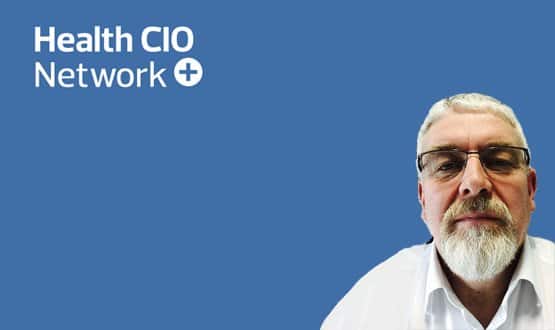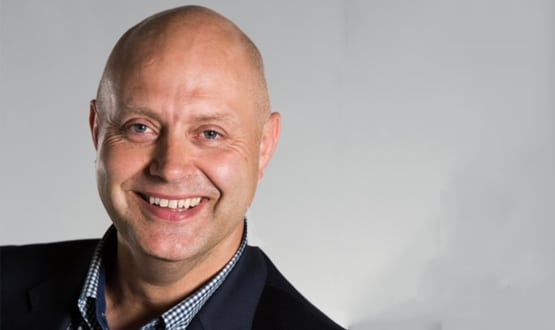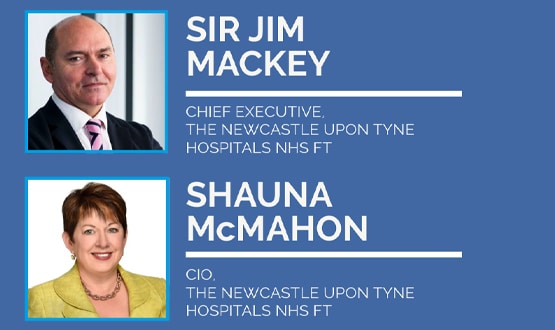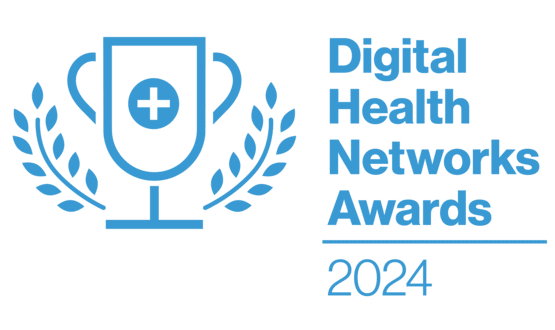The CIO interview: Luke Readman, Waltham Forest, Newham and Tower Hamlets CCGs
- 8 May 2017

Luke Readman – chief information officer at Waltham Forest, Newham and Tower Hamlets CCGs – talks to Digital Health about moving from radiology to NHS informatics and explains why Alan Turing would be one of his dream dinner party guests.
Why did you become an NHS CIO?
I started my NHS career as a radiographer training from 1977 and qualifying in 1980. Digital imaging was just beginning to catch on, with the widespread deployment of CT scanners, ultrasound and nuclear medicine machines. Computation was part of my life from that point. Later on it became clear to me that the widespread use of computation had enormous potential so in 1997 I jumped ship to NHS informatics.
Within your organisation, what is the most significant digital achievement of the past 12 months?
After agreeing a common approach to the way we work together, the electronic sharing of clinical information at the point of care across east London and the benefit for patients has been very humbling. This makes me very proud and privileged to work in east London.
What will be the most significant of the next 12 months?
Unlocking the power of the data within each of the organisational siloes so that we can make very significant step towards a ‘learning health system’.
What’s the biggest barrier to being a more effective CIO?
There are many struggles, from basic investment in consistent infrastructure over time to a failure to properly use systems. For me though the biggest barrier is the continual organisational change that we are subject to which is debilitating and hampers consistent leadership and decision making, especially when our backs are to the wall financially. This year is my fortieth in the NHS including my time training as a radiographer – I will leave it to you to count the number of reorganisations over that time!
What’s the biggest barrier the NHS faces overall in achieving digital transformation?
A real willingness to accept that by design the patient should have a full record and the potential for all of their interaction to be electronic unless otherwise needed.
If you have one piece of advice for other NHS CIOs, would it be?
Success in transforming through technology has both technical and human components. Do not underestimate the effort required to get the human bit right. In reality this is probably harder than the technology bit. You cannot work alone.
Who in the NHS do you admire the most and why?
This is a hard question to answer. I would like to think that I can jump away from my own lens on life and take a view about staff or great leaders in any discipline. For me though, and shaped by my own experiences, the people I admire most are the people, friends, relatives, acquaintances who willingly subject themselves to the trials of the service to make lives somewhat better. When I started out the prevailing view was that people were lucky to be seen and treated. What I really think now is that people in the service should never lose sight of the enormous privilege it is to help people in times of need.
If you were given £30 million to spend on digital transformation, where would that money go?
In east London, £30 million would probably just about correct the basic infrastructure problems we have – I am not so sure we are really different from any other area. We must make rapid strides towards patients’ own personal health records, perhaps the biggest weakness of our current arrangements nationally.
What is the most over-hyped digital innovation in health?
The open source movement has great value, though not in the mistaken belief that this directly is more cost efficient or easier to manage – paradoxically it may be harder if collective effort moves in different directions. The real value in open source, in my view, is the message that all the intellectual property so generated will be available for public good. I think it is this that has been missed and so led to misconception and overhype.
What is the most under-rated digital innovation in health?
It is now pretty rare, if not impossible, for any single technique or innovation to stand on its own. Our ability to communicate easily – whether through mobile phones, social media or indeed messaging systems within digital health records – is by far and away the biggest game changer in the past 50 years.
And a few non-digital questions, what’s the worst job you’ve ever had and why?
I have had a number of jobs that have been difficult, indeed probably every job I have had has had difficulties, but the question here is ‘worst’, a sort of absolute term and generally I try and avoid absolutes for good or bad. Perhaps I can interpret this as the one I least liked, in which case I would choose my time in the mid ’80s as a representative of the Council of the Society and College of Radiographers. Nothing to do with the people or the organisation – I am immensely grateful for all I took and was given. But looking back on this time from 30 years in the future, I am pretty sure I did not have the maturity that was asked of me in that role at that time. I am very different now and would undoubtedly approach this differently. The message of the time for me was ‘beware of what you ask for’.
If you could invite three people, alive or dead, to dinner who would they be?
The first would be Alan Turing, not because of his role in code breaking but really because he was persecuted by society for his orientation but nevertheless was able to create original thought in the ‘Turing Test’ for computers. We still struggle with this today in attempting to make the human/machine interface as natural as possible. It is amazing how in persecuted societies so much good can emerge.
The second would be my father who died early from his own lifestyle choices – or is it really society and experience that sets lifestyle? So much in the Marmot report rings true. I would like to understand him as a person better and be more of a friend to him with his own struggles. Perhaps we only get these insights as we get older and are shaped ourselves. We are all I suspect much more complex that we like to admit.
For my third I would like to stretch the question and invite an imaginary person – that is who would I have become if I did not make a choice at 18 and start training to be a radiographer.
What’s the background image on your home computer?
I have a photograph taken from a ship on an evening sail from Southampton, just as we have rounded the Isle of Wight and begin heading west into the setting sun on an impeccably calm warm evening.
What’s your favourite piece of technology at home and why?
I like to think I can take a photograph, so have a digital SLR camera. In truth I take many pictures, a few, by coincidence it seems, have some merit. You would not want to see the full collection!
If you could have any other job, what would it be?
I enjoy my job, perhaps now more than at any time in my career. In fantasy land I would like to be a writer or poet.
In a film of your life, who would play you?
By gum, you’ve stumped me there! But Bryan Cranston would be well placed.





2 Comments
Hi! I know this is kinda off topic but I was wondering which blog platform are you using for this site?
I’m getting fed up of WordPress because I’ve had problems
with hackers and I’m looking at alternatives for another platform.
I would be fantastic if you could point me in the direction of a good platform.
fodboldtrøjer
If some one needs to be updated with latest technologies afterward he must be pay a visit
this website and be up to date everyday.
seconda maglia juve 2017
Comments are closed.